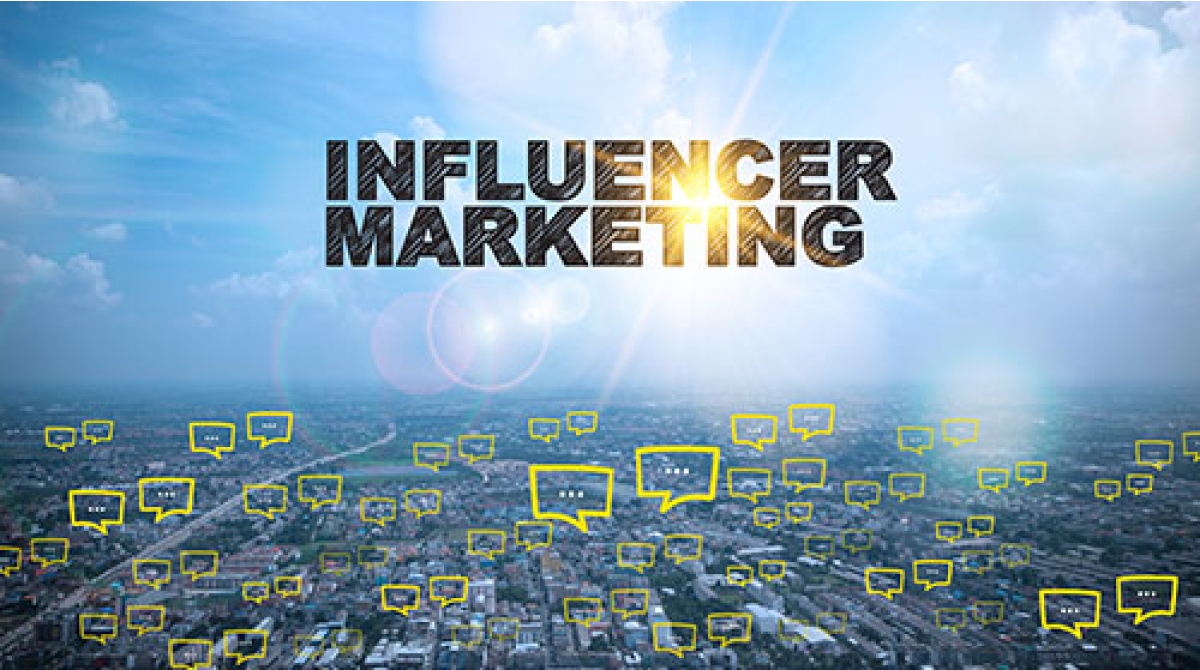Influencer marketing is the concept of collaborating with social content creators—those with large audiences on networks such as Facebook, Twitter, Pinterest, YouTube, and Instagram—to help satisfy the consumer's insatiable appetite for stories and opinions about the products they buy.
Millions of dollars are being invested in the burgeoning industry by brands and agencies looking for solutions to help them scale the creation and distribution of consumer content. For several reasons, food and beverage brands are uniquely positioned to outperform other verticals in terms of digital influencer success. Food is one of the most discussed topics on social media. Not every consumer is a runner, fashionista, or moviegoer, but everyone on the planet consumes food. Eating is deeply social and culturally significant-an occasion for sharing, giving, celebrating, and expressing.
Are you one of the many food and beverage brands developing social campaigns under the assumption that users will scroll through their feeds in the hopes of discovering your latest offerings? If this is the case, you may be disappointed to learn that the majority of users consume social content in order to connect with other like-minded users and learn how the people they admire build their own lifestyles.
This trend explains the growing popularity (and success) of food influencer marketing.
Partnering with influencers who have no vested interest in your brand is proving to be a lucrative strategy for the F&B industry at a time when 85% of consumers believe user-generated content is more influential than branded content.
We'll go over some key points about how important food and beverage influencers have become for brands in the section below.
WHY WORK WITH INFLUENCERS?
One of the most effective ways to build trust and engagement with your audience is by collaborating with key influencers to create relevant, quality content. Some key reasons why influencers make powerful partners include:
-They have the trust of their audience.
-They reach and engage a very targeted audience.
-They represent an authentic consumer experience.
-They sometimes have a bigger reach than the brands themselves.
-They are an army of content creators that are better, faster, and cheaper than what brands can do themselves.
-Their content is already shareable
Influencers have some distinct advantages that are difficult for brands to replicate, including large communities of followers, consumers’ trust, authentic personal experience, and social network expertise. Social influencers are effective at starting, sharing, and spreading online conversations, which is incredibly valuable to brands. When it comes to consumer spending, online content and social conversations have a significant impact on how consumers choose what to buy. While product information and brand-crafted messaging is valuable, consumers want information that comes from like-minded people they trust. Content from third-party experts and their personal networks is often more trusted than content from advertising or brand website.
7 INFLUENCER MARKETING STRATEGIES FOR FOOD BRANDS:
Do an online search for the best influencer marketing campaigns and you’ll get lists that include a disproportionately high number of consumer food brands. Leveraging bloggers and collaborators on social media is paying off big-time for food brands as they see lifts in awareness, customer engagement, and sales. But just being a popular topic doesn’t guarantee success. There are seven KEY strategies for food brands that can help ensure success.
They include:
-Find the Right Influencers
-Make Creating Great Content Your Top Priority
-Make Visual Content a Dominant Part of Your Content Strategy
-Get Creative and Take Some Chances:
-Let the Conversation be About the Consumer Experience with Your Food, Not Your Brand
-Repurpose Content on Owned Media
-Track and Measure Performance
When it comes to food and beverage influencers, there are many tiers to work with, ranging from mega to macro, micro, micro-micro, and even nano. While your instinct may be to seek out the largest following, this is not only the most expensive approach, but it is also the incorrect approach. Consumers who follow micro-influencers are reassured that new products or experiences are appropriate for them because they are promoted by people who are similar to them.
Finally, Food Influencer Marketing remains a valuable tactic for brands because influencers create consumer-focused content that meets and solves their audience’s needs, which is exactly what successful marketing should do.
Working with a results-driven agency like Doors Studio will help you tap into the data you need to plan, execute and optimize your influencer campaign, ensuring you get the most out of it.


